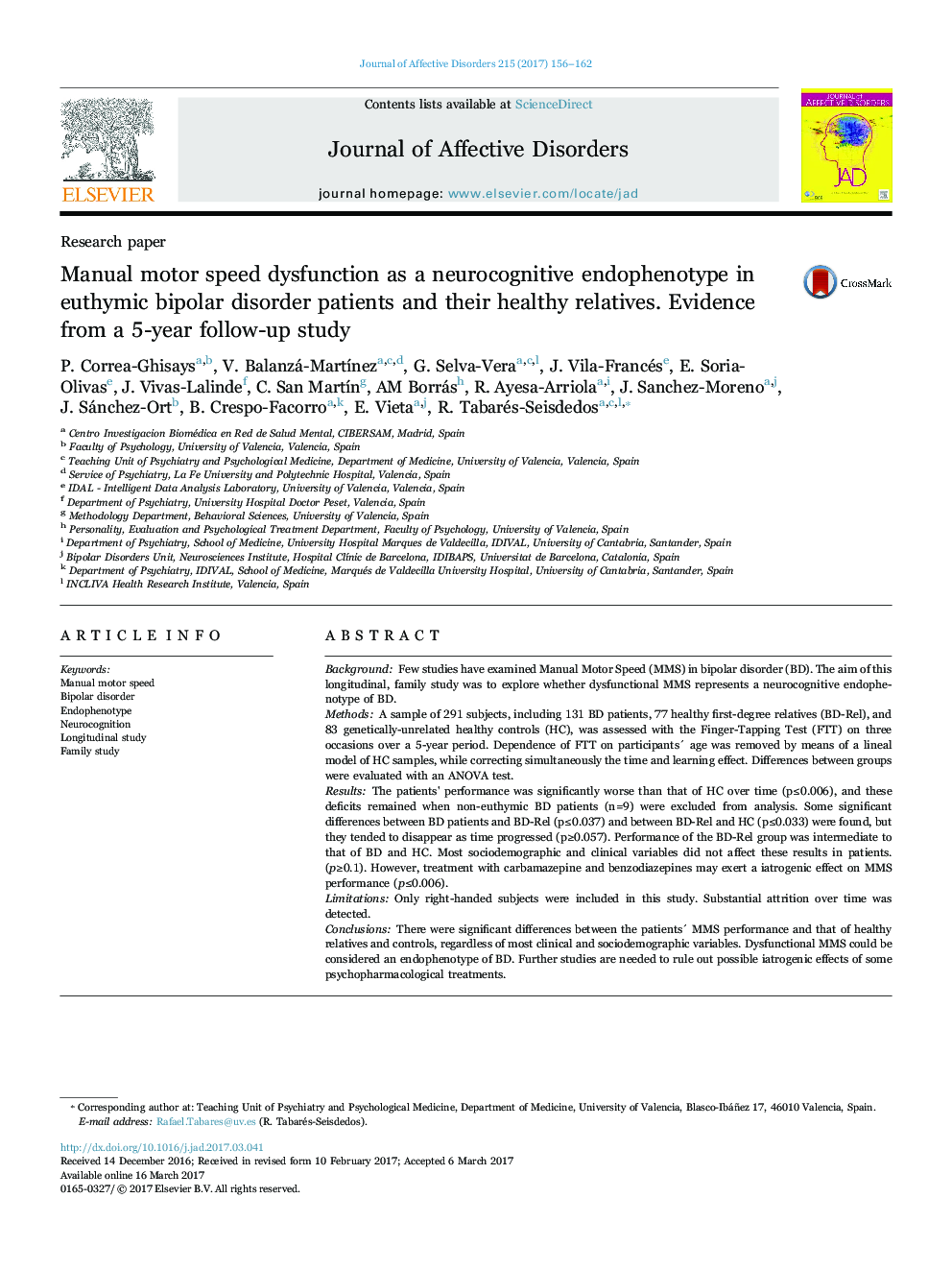| Article ID | Journal | Published Year | Pages | File Type |
|---|---|---|---|---|
| 5722340 | Journal of Affective Disorders | 2017 | 7 Pages |
â¢Bipolar disorder patients showed a stable deficit on manual motor speed over a 5-year follow-up study.â¢The performance of healthy relatives on motor speed was intermediate to that of patients and healthy controls.â¢Dysfunction in manual motor speed could be considered a suitable endophenotype of bipolar disorder.â¢The likely detrimental effects of benzodiazepines and carbamazepine on motor speed deserves further research in bipolar disorder.
BackgroundFew studies have examined Manual Motor Speed (MMS) in bipolar disorder (BD). The aim of this longitudinal, family study was to explore whether dysfunctional MMS represents a neurocognitive endophenotype of BD.MethodsA sample of 291 subjects, including 131 BD patients, 77 healthy first-degree relatives (BD-Rel), and 83 genetically-unrelated healthy controls (HC), was assessed with the Finger-Tapping Test (FTT) on three occasions over a 5-year period. Dependence of FTT on participants´ age was removed by means of a lineal model of HC samples, while correcting simultaneously the time and learning effect. Differences between groups were evaluated with an ANOVA test.ResultsThe patients' performance was significantly worse than that of HC over time (pâ¤0.006), and these deficits remained when non-euthymic BD patients (n=9) were excluded from analysis. Some significant differences between BD patients and BD-Rel (pâ¤0.037) and between BD-Rel and HC (pâ¤0.033) were found, but they tended to disappear as time progressed (pâ¥0.057). Performance of the BD-Rel group was intermediate to that of BD and HC. Most sociodemographic and clinical variables did not affect these results in patients. (pâ¥0.1). However, treatment with carbamazepine and benzodiazepines may exert a iatrogenic effect on MMS performance (pâ¤0.006).LimitationsOnly right-handed subjects were included in this study. Substantial attrition over time was detected.ConclusionsThere were significant differences between the patients´ MMS performance and that of healthy relatives and controls, regardless of most clinical and sociodemographic variables. Dysfunctional MMS could be considered an endophenotype of BD. Further studies are needed to rule out possible iatrogenic effects of some psychopharmacological treatments.
